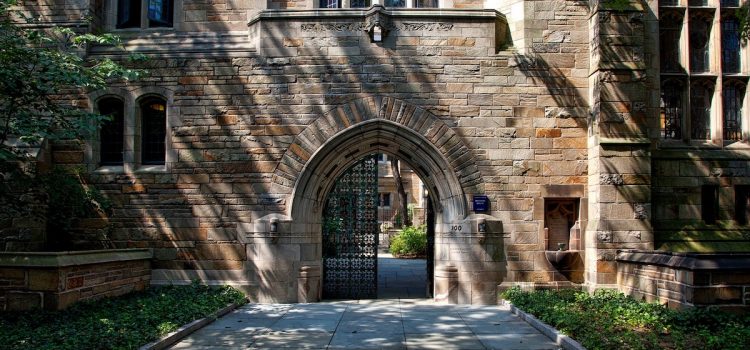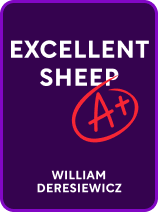

This article is an excerpt from the Shortform book guide to "Excellent Sheep" by William Deresiewicz. Shortform has the world's best summaries and analyses of books you should be reading.
Like this article? Sign up for a free trial here.
Why are some college admissions criteria so narrow? Why do elite schools keep their acceptance rates so low?
Elite colleges and universities in the U.S. typically accept less than 10% of applicants. In Excellent Sheep, author and former Yale professor William Deresiewicz makes the case that these institutions are so selective that they actually harm students and society.
Keep reading for Deresiewicz’s explanation of why elite schools’ admissions criteria are so selective.
Selective College Admissions Criteria
Deresiewicz’s vision of an ideal college education is in contrast with the experience that elite U.S. schools offer. By “elite U.S. schools,” the author means prestigious, highly-selective colleges and universities such as Yale, Princeton, and Amherst.
Deresiewicz claims that college admissions criteria at elite U.S. schools are so selective that they both harm students and perpetuate social inequality. These criteria include high, narrow standards for the following factors: standardized test scores, leadership experience, extracurricular activities, and social identities.
According to Deresiewicz, elite schools use selective admissions criteria because they stay in business by marketing themselves as highly selective. A school is considered highly selective if it only accepts a small percentage of its applicants.
Elite schools market themselves as highly selective because doing so offers them a competitive advantage over less-selective schools. U.S. News and World Report, a top source of college rankings, elevates a school’s rank as it grows more selective. A top ranking signals prestige, and prestige attracts upper-class students. Elite schools strive to admit qualified, upper-class students because they and their families are likely to pay full tuition and later become donors.
| Are Elite Schools Today Deemphasizing Their Selectivity? Although many elite U.S. schools continue to send data on their selectivity to publications such as U.S. News and World Report, in recent years, several schools have chosen to stop publishing their acceptance rates. Leaders at these schools defend this decision by claiming they don’t want their low admissions rates to stress out prospective applicants. However, critics question the real intentions behind elite schools withholding their admissions data, claiming that their true aim is to make more money. When these institutions withhold their admissions data, they attract students who would’ve otherwise been discouraged by low acceptance rates. This increases elite schools’ applicant pool (and, presumably, drives their acceptance rate even lower). Schools that charge an application fee, such as Princeton, make money when they increase their applicant pool in this way. |
Furthermore, elite schools keep their acceptance rates low by attracting a high number of applicants. They accomplish this by marketing themselves globally and heavily recruiting applicants they don’t plan on accepting. With so many applicants to choose from, these institutions can be picky about whom they admit. As a result, their admissions criteria are exceedingly selective.
| Will Elite Schools’ Admissions Criteria Become More Selective? It’s likely that elite admissions criteria will become increasingly selective in the coming years because applications to college are steadily rising. Applications have been on the rise since 2014, and they have accelerated in the wake of the Covid-19 pandemic. Despite this increase in demand, elite colleges have hardly expanded their enrollment. Researchers argue that these institutions have maintained low enrollment rates to compete with each other, supporting Deresiewicz’s claim that they preserve their selectivity to stay in business. These experts argue that elite colleges could raise their admissions rates by making a coordinated effort to all increase enrollment. Doing so wouldn’t alter their relative selectivity, and it could prevent their admissions criteria from growing even more selective. However, this effort would require elite schools to expand their facilities and hire new faculty and staff to keep up with the increase in students. |

———End of Preview———
Like what you just read? Read the rest of the world's best book summary and analysis of William Deresiewicz's "Excellent Sheep" at Shortform.
Here's what you'll find in our full Excellent Sheep summary:
- How elite colleges contribute to social inequality and harm students
- The ways that elite schools prioritize profits over teaching
- How governments, schools, and parents can overhaul U.S. higher education






